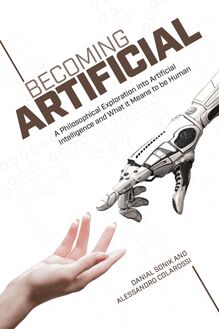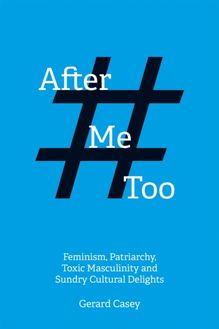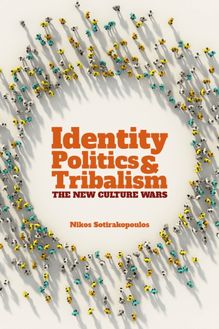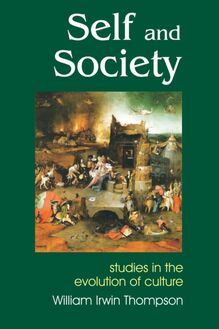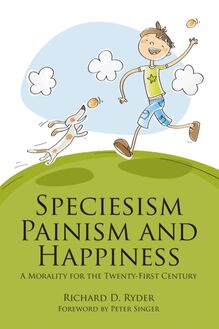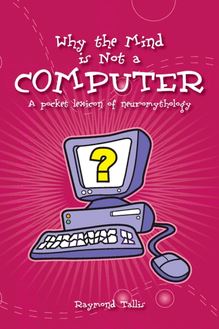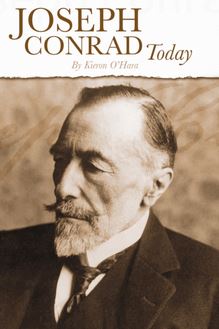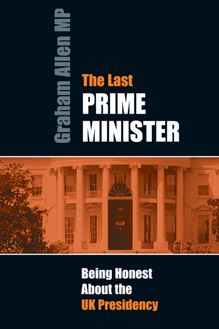On Liberty and Peace - Part 1 , livre ebook
82
pages
English
Ebooks
2016
Vous pourrez modifier la taille du texte de cet ouvrage
Obtenez un accès à la bibliothèque pour le consulter en ligne En savoir plus
Découvre YouScribe en t'inscrivant gratuitement
Découvre YouScribe en t'inscrivant gratuitement
82
pages
English
Ebooks
2016
Vous pourrez modifier la taille du texte de cet ouvrage
Obtenez un accès à la bibliothèque pour le consulter en ligne En savoir plus
Publié par
Date de parution
26 juillet 2016
Nombre de lectures
0
EAN13
9781845407056
Langue
English
Publié par
Date de parution
26 juillet 2016
Nombre de lectures
0
EAN13
9781845407056
Langue
English
Title page
On Liberty and Peace
Part One
Liberty
Matt Edge
SOCIETAS
essays in political
& cultural criticism
imprint-academic.com
Publisher information
Copyright © 2010 Matt Edge
The moral rights of the authors have been asserted.
No part of any contribution may be reproduced in any form without permission, except for the quotation of brief passages in criticism and discussion.
Imprint Academic, PO Box 200, Exeter EX5 5YX, UK
Dedication
To My Parents
For teaching me what freedom to judge means while never being judgemental
Preface
Ayer began Language, Truth and Logic by saying “the traditional disputes of philosophers are, for the most part, as unwarranted as they are unfruitful.” [1] Elisabeth Anscombe began ‘Modern Moral Philosophy’ by stating “it is not profitable for us at present to do moral philosophy.” [2] Even the normally restrained Bernard Williams could write, “most moral philosophy at most times has been empty and boring.” [3] I’m afraid that I don’t have anything quite so shocking to say, and I don’t wish to imply that I belong in such company, or even that I could be called a philosopher. I actually happen to think that much political philosophy (towards which, I have to admit, the present work has pretensions) is spectacularly impressive, though I do hope that this book will try to move the discipline in a different direction, perhaps towards a path it hasn’t taken for over 2500 years (though, as I, following a number of others, have said elsewhere, it is perhaps doubtful whether it actually ever took it then).
The political philosophy of this book might be called participatory. Not only am I a passionate believer in participatory democracy, I am also concerned with how political philosophy can be participatory, which might be another way for saying accessible. It is a central argument of the following that political philosophy is, or should be, as important to you (and everyone else) as the subjects which seem to define our (or perhaps any) age - the movement of the planets, the way our human bodies function and the changing physical and natural world around us. Believe me when I say that this book is about you (and everyone else), far more than it is about me and only you (and everyone else) can say whether or not I have lived up to my claims about accessibility.
If this book is intended to launch a debate, then let me begin with a plea as to how that debate is conducted. I think that many people are put off, certainly modern politics, and possibly modern political theory as well, by personal invective and polemical claims to subjective truth. Doubtless I will fail to live up to my own ideals, and I particularly regret that the second half of chapter three seems far more polemical than I had intended, but I don’t think any debate can get very far unless it is conducted with open ears, open hearts and open minds, with a genuine willingness to listen, accompanied by a genuine acknowledgement that you or I (or both), the disputants, may be wrong. It seems strange to begin a project with an open acknowledgement that the answer it provides may be wrong, but since, as readers will hopefully soon see, this is representative of the very essence of what I am arguing in these pages. It seems, on the contrary, a fully appropriate place at which to begin. However, before beginning that debate, let me say a few words of thanks.
I must start by thanking a large number of people who have helped with the development of my ideas, and who have supported me through thick and thin. Malcolm Schofield and Janet Coleman provided keen criticism of some of these embryonic ideas, and the latter has particularly been a constant source of inspiration and encouragement to me over the past few years. The same should be said of Ryan Balot, with whom I have benefitted from a number of exchanges which have helped to greatly clarify my thinking on a number of points. I must also thank Ian Malcolm for his kindness and for some interesting discussions about my work. Claire Grant has also read my work and offered a number of interesting comments which have directed me - indeed - towards new directions. My former students, in Nottingham and Cambridge, were vital in the development of my thinking and it was an absolute privilege to have been taught by each and every one of them.
To my friends, Harry Platanakis, Kostas Vlassopoulos, Aleka Lianeri, Eftychia Bathrellou and Anthony Miller, I owe thanks for countless interesting exchanges, over countless interesting evenings, and all of them have greatly contributed to the development of my thought and have each encouraged me and supported me for many years. Words cannot express the debt I owe them. David Jacobs kindly lent his keen eye for detail to proofreading this manuscript and for this I remain hugely grateful.
Going a little further back, Steve Hodkinson and Stephen Todd were hugely supportive of me, and encouraging to me, in the years when I first encountered Athenian democracy, and I will never forget the wisdom, insight and passion they imparted to me. Going further back still, I must thank Sheilagh Hughes and Lucy Hare for showing me a patience I simply did not deserve. Without Whom Not as they say.
To John Salmon, I owe thanks for companionship and inspiration over many fascinating discussions about Athenian democracy. John is as inspiring a man as he is a teacher and I will never forget his kindness and inspiration.
To Quentin Skinner, I owe thanks for both inspiration from his work and for his kindness and generosity towards mine. I sent him a copy of this manuscript as a fervent disciple in the hope that he might offer comments and encouragement. He read, and commented on it, within twenty four hours and has provided encouragement ever since. He will remain a constant inspiration to me, as much for his kindness as his innovative and passionate approach to political philosophy and its history which, as will be clear from the following, has had a huge bearing on the development of my thought.
It seems strange to thank someone I have never met, nor had any contact with, but I cannot fail to mention the late Donald Davidson, whose work has had a profound influence on the development of my thought and in a number of ways. Not only was Davidson a brilliant and remarkable philosopher, reading his work also strikes me as the way debates should be conducted - in a warm, accessible and charitable, yet passionate fashion - a mood and tone which I will certainly try, though in all likelihood fail, to emulate. This is confirmed by Richard Rorty’s kind review of one of Davidson’s final collection of essays, which I mention in the text. Rorty also notes there that Davidson’s work has dropped off undergraduate philosophy reading lists. Given the importance of his radical and innovative approach to philosophy, I can only hope this changes. I have no idea what Davidson would have made of my own work, but that is not reason enough not to thank him for months, of inspiring reading which have - very literally - revealed a new way of looking at the world to me.
To Paul Cartledge, what can I say? He was an inspiring supervisor and has remained an inspiring mentor ever since. Paul is one of the most accessible and approachable people I have ever met, only equalled, in fact, by the accessibility and approachability of his work, which remains a constant inspiration to me for this very reason, and for many others besides. Likewise, Paul’s kindness is only matched by the encyclopedic knowledge he brings to his work, as anyone who has been fortunate enough to meet him, or work alongside him, will testify. He has read countless drafts of this manuscript, and many others besides, and improved every one immeasurably with an unmatched eye for detail and a similarly unmatched command of interesting facts, further reading and further and future directions. He has provided constant encouragement and support when I have most needed it and was also the one who directed me towards Imprint Academic, a piece of advice for which I will remain eternally grateful.
At Imprint, Anthony Freeman has been an incredibly patient and understanding editor and has been a pleasure to work with. I must also thank, in particular, an anonymous reader for Imprint who produced a lengthy report on my work which has helped me improve it in immeasurable ways. I can genuinely say that this was the most helpful review process I have yet been through and I cannot thank she or he more than that. Imprint’s designer has also done an incredible job of capturing the essence of what this project is about.
My friends and family have also been a constant source of support and encouragement through the difficult days. My colleagues, in Leicester, Coventry and Chelmsley Wood, over the past three years, who I won’t name (you all know who you are), are a constant source of inspiration through their passion and dedication to their work. My partner, Katie Jacobs, has the capacity to endure my frustrations and endless ramblings about freedom and peace in a way I never thought possible. And my parents, to whom I dedicate this work as a small token of gratitude for everything they have done for me over the past 30 years, brought me up to judge freely and to question everything I saw around me, whilst also constantly reminding me, in small but vital ways, of the hopeful human condition which, ultimately, lies in all of us.
Any mistakes are and remain my own, but I owe a huge debt of gratitude to all the above (and many more besides) for helping me address previous flaws. None of my opinions, of course, can be taken as representing anyone I have mentioned, but I must thank each and every one of them for propelling me, and accompanying me, along the journey w

